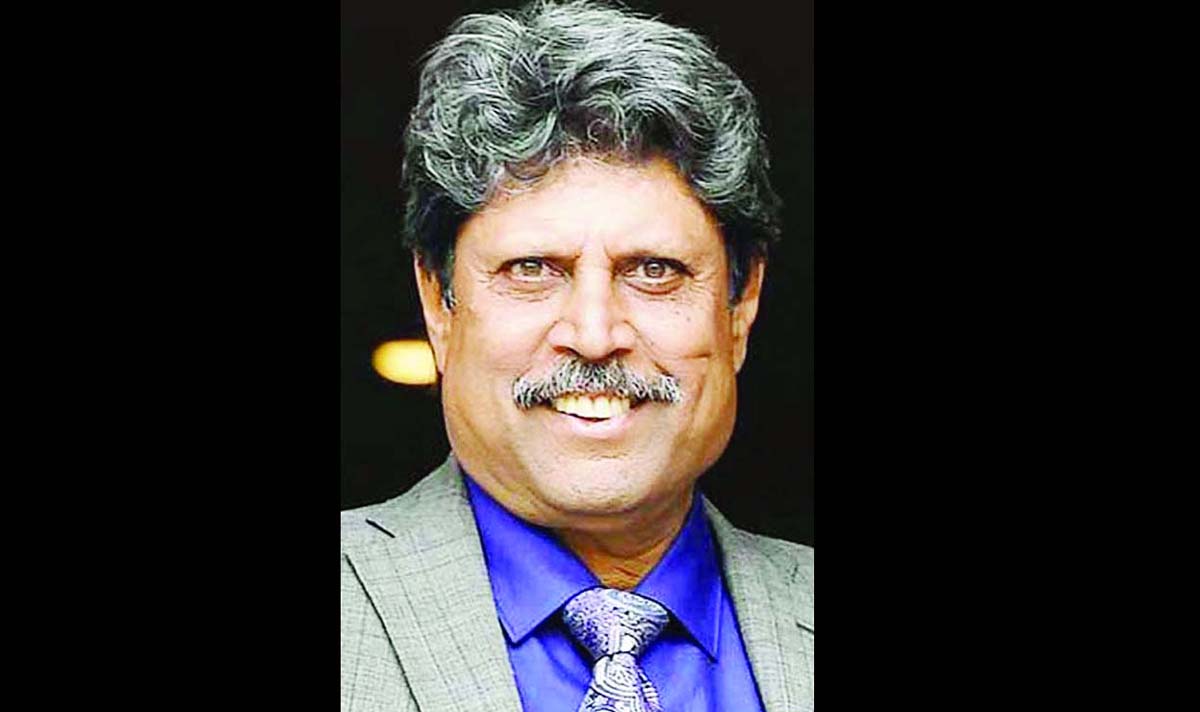India’s first Cricket World Cup winning captain Kapil Dev was the guest at Ek Mulakat Vishesh organised by Prabha Khaitan Foundation (PKF) and Shree Cement. From cricket to politics to social media, Kapil Dev played every ball like a true allrounder, in a candid conversation with Ehsaas Woman of Delhi Archana Dalmia. Souvik Ghosh brings highlights
Is winning the World Cup in 1983 still the most defining moment of your life?
Not at all. I don’t think so. The most important moment is still the day when I was born and the second most important day was when I played for India first. To me as a kid, the most important was to represent the country. That was the best time of my life.
Ranveer Singh is going to portray you in 83, which will also see Deepika Padukone as your wife Romi Dev. Your thoughts.
The movie is on the 1983 team, which had won the World Cup. The film is about the journey of India’s World Cup win. The makers are going to show both good and bad experiences of that journey.
You have played cameos in films over the years. Do you ever consider playing a role in a full fledged film?
No, not at all. My mother had said I should never do anything other than sports as I do not have a good appearance (laughs). So I never tried (acting). I haven’t acted in a cameo but just played the Kapil Dev role to make a movie better and look authentic.
You also refrained from entering into politics.
I don’t mind fighting elections and coming into politics. I didn’t join politics because I had learnt that it was not possible to air an opinion contrasting with the party chief. I can’t change my own personality for politics. I can’t become a politician because I don’t want to curve my own, natural way to think. Winning or losing an election is different as long as I have an opinion of my own. I would even stand with the Opposition if my opinion matches with it. That’s the way politics is in my mind.
You are a role model for the young cricketers who are playing for the country, regions as well the IPL teams. How does it feel?
No, I think role models keep on changing from time to time. The role models of today’s generation are Yuvraj Singh, Dhoni (MS Dhoni), Virender Sehwag, Sourav Ganguly. Maybe after 10 years, the role models would probably be Virat Kohli, Shikhar Dhawan because every generation keeps on changing. 30 years later, the kids won’t know so many cricketers who have played in my time.
How do you feel about the Ranchi man Mahendra Singh Dhoni who took forward your legacy of winning the World Cup?
It’s not only about the World Cup. It’s about people like Dhoni, me, Harbhajan (Harbhajan Singh) or Zaheer Khan who came from a very small town. 30 years ago, cricketers hardly used to come from small towns or tier two or tier three cities. Now 90 per cent of the cricketers used to come from semi-metro cities and towns. In 20 years from now, I am sure lots of cricketers will come out from very small towns, may be from villages because sports have gone to all across India.
Now Natarajan (T. Natarajan), the bowler who is playing for India, is the son of a mother who runs a tea stall and a father who is working as a coolie. He is playing for India! That’s the change that sports have brought to this country.
You had no social media in your time. Do you think it was a blessing or curse?
I think both. I will only ask people to use this medium for betterment. We should try to share good news on social media and be proud of those because at the end of the day, knowledge is strength. Technology, if it is taken in the right spirit, is wonderful, otherwise it can be devastating. (IBNS-TWF)
Trending Now
E-Paper


